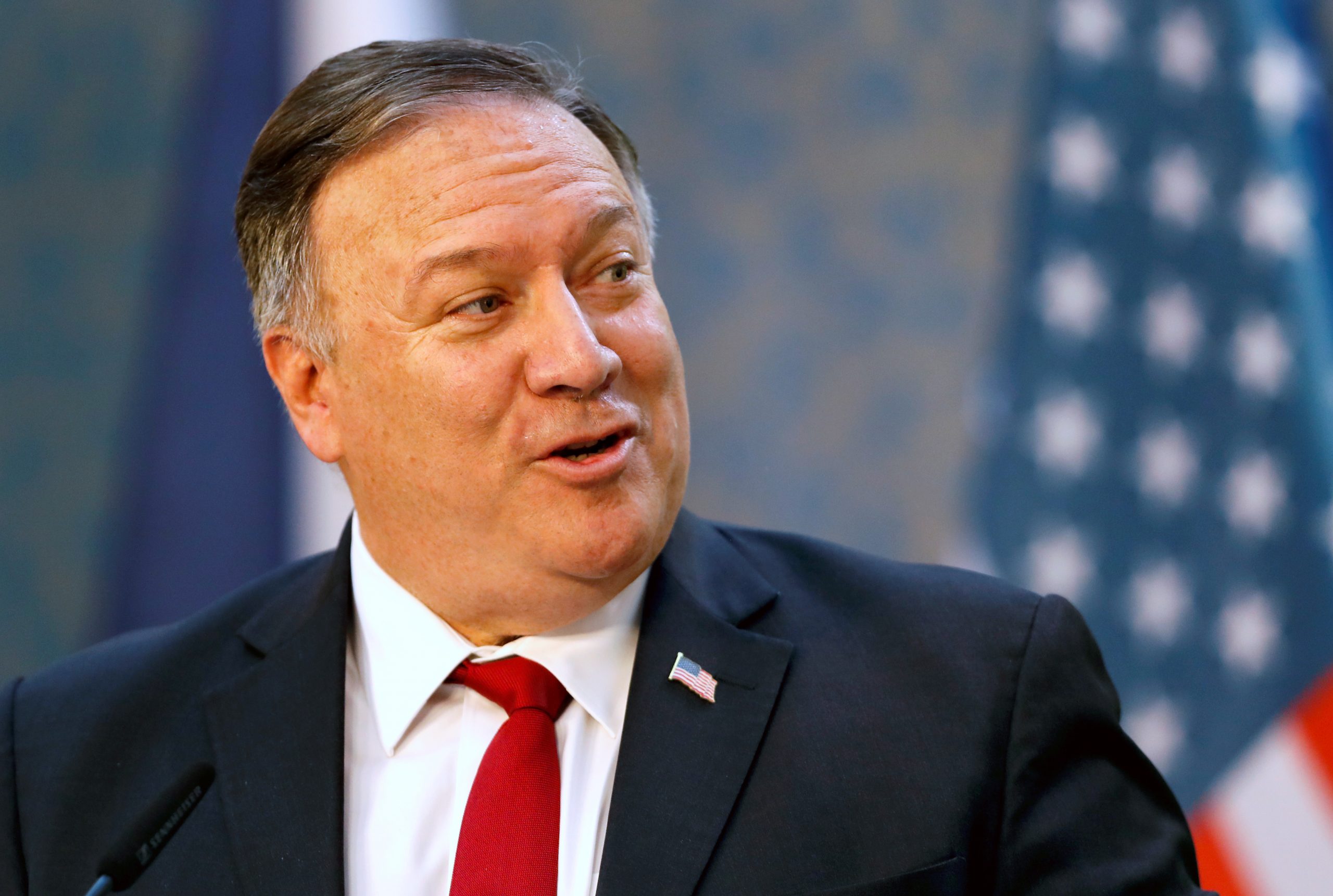The United States said on Thursday it was requiring the center that manages Chinese government-funded Confucius Institutes in the United States to register as a foreign mission, the latest sign of deteriorating relations between Washington and Beijing.
U.S. Secretary of State Mike Pompeo, in a statement, labeled the Confucius Institute U.S. Center in Washington “an entity advancing Beijing’s global propaganda and malign influence campaign on U.S. campuses and K-12 classrooms.”
David Stilwell, the top U.S. diplomat for East Asia, told a briefing the dozens of Confucius Institutes in the United States were not being kicked out, but said U.S. universities should take a “hard look” at what they were doing on campus.
Academic exchanges needed to take place without government intrusion, Stilwell said.
Pompeo said the goal of the move was to ensure American schools “can make informed choices about whether these CCP (Chinese Communist Party)-backed programs should be allowed to continue, and if so, in what fashion.”
“The United States wants to ensure that students on U.S. campuses have access to Chinese language and cultural offerings free from the manipulation of the Chinese Communist Party and its proxies,” he said.
Pompeo said the Trump administration had made it a priority to seek fair and reciprocal treatment from China and Beijing had enjoyed free and open access to U.S. society while denying that same access to Americans and other foreigners in China.
Last year, the U.S. State and Education Departments promised stricter monitoring of the institutes, which have been criticized in Congress and elsewhere as de facto propaganda arms of China’s Communist government.
In June, the State Department announced it would start treating four major Chinese media outlets as foreign embassies, calling them mouthpieces for Beijing.
U.S.-China relations are at their lowest ebb in decades, with President Donald Trump taking a tough line on Beijing ahead of his Nov. 3 re-election bid.
The world’s top two economies are at loggerheads on issues ranging from the handling of the coronavirus pandemic to China’s crackdown on freedoms in Hong Kong and what U.S. officials say is rampant espionage activity to steal U.S. business and military secrets.
In his briefing, Stilwell said China had taken no action to address fundamental U.S. concerns about where bilateral ties were going and also referred to U.S. allegations that Chinese diplomats were involved activities that undermined medical research and freedom of speech.
“We are having discussions and we’re emphasizing to them that they need to address our fundamental concerns, and we will take steps if they do not,” Stilwell said, when asked about a recent statement by China’s Vice Foreign Minister Le Yucheng on the need to ensure the relationship does not derail.
Stilwell said there were about 500 Confucius classrooms in the United States affiliated with a university-based Confucius Institute.
According to the U.S. non-profit organization, the National Association of Scholars, there were 75 Confucius Institutes in the United States as of June, including 66 at colleges and universities.
The association contends that the institutes compromise academic freedom, defy Western norms of transparency, and are inappropriate on campuses. China rejects that criticism, calling it politicized and baseless.
(Reporting by David Brunnstrom, Humeyra Pamuk, Tim Ahmann and Jonathan Landay; Editing by Susan Heavey, Sonya Hepinstall and Tom Brown)

























 Continue with Google
Continue with Google